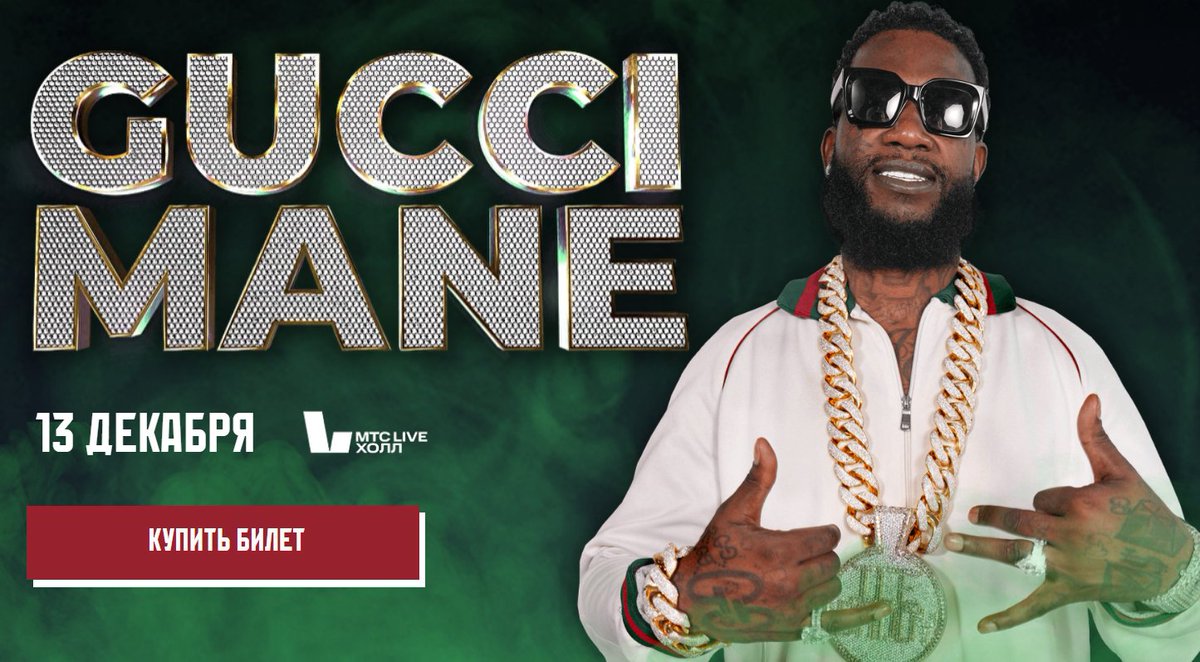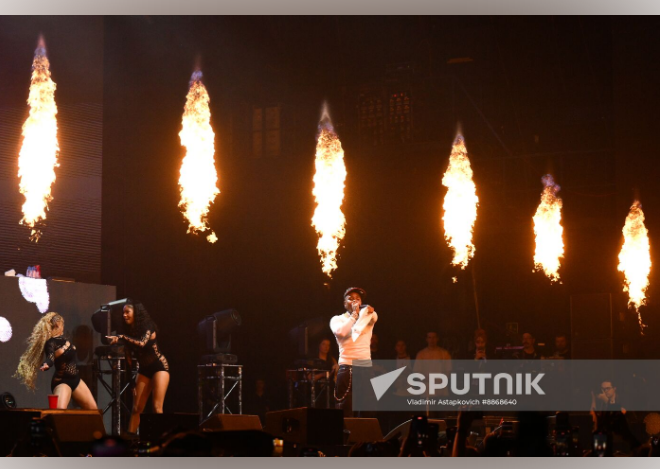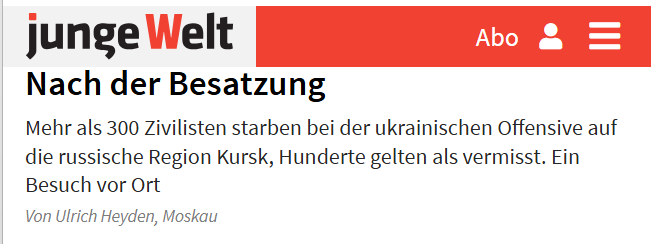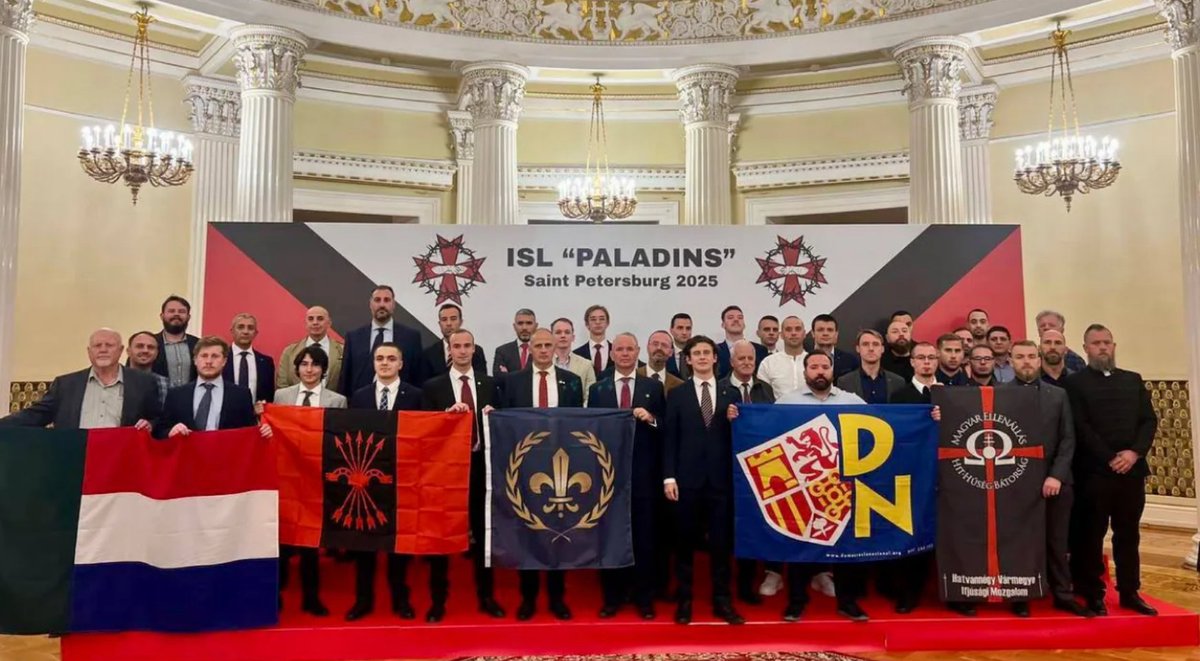(1/25) Seven years ago, two Russian neo-Nazis Alexey Milchakov & Denis Vikhorev discussed on which side of the Ukrainian-Russian conflict Russian nationalists should position themselves.
Milchakov on Russian vs. Vikhorev on Ukrainian side.🧵
Milchakov on Russian vs. Vikhorev on Ukrainian side.🧵
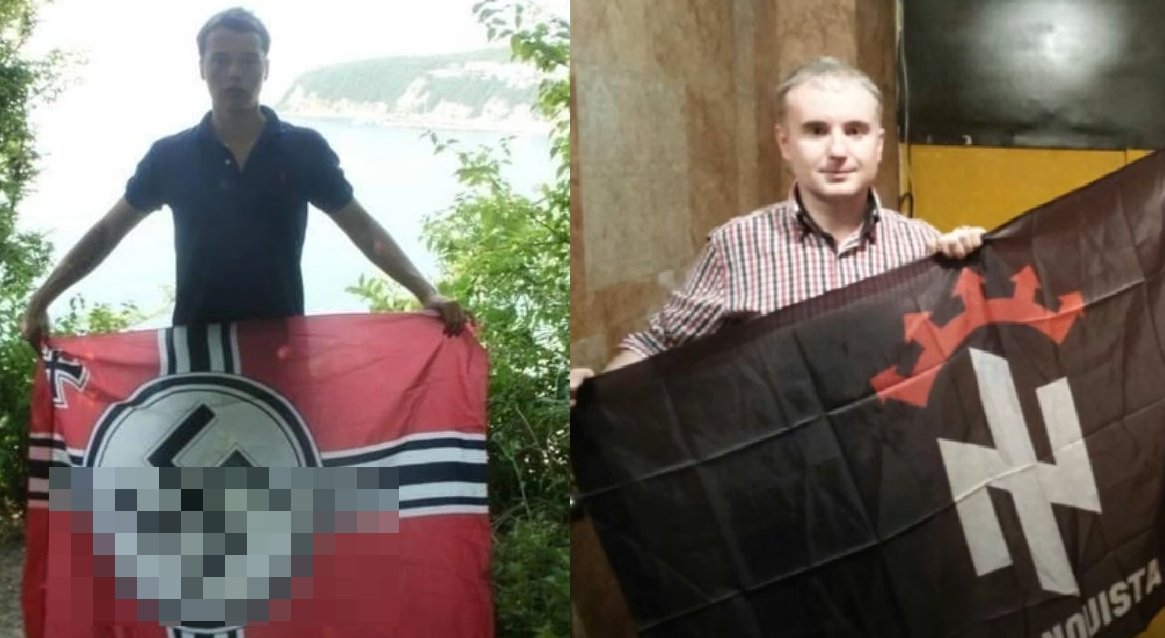
(3/25) Alexey Milchakov was trained by the clerical-fascist White Supremacists of the "Russian Imperial Movement" and founded the Rusich unit.
He is known for his particular cruelty and his open commitment to Nazism. Right picture with the "Governor of Crimea" Sergey Aksyonov.

He is known for his particular cruelty and his open commitment to Nazism. Right picture with the "Governor of Crimea" Sergey Aksyonov.


(4/25) Alexey Milchakov justifies his motivation to fight for the Russian side with memories of his childhood, in which he had seen Ukrainian representatives alongside Chechen fighters on television in 1997.
(5/25) Alexey Milchakov describes the fight for "Novorossiya" as the "uprising of normal people" out of fear of "no longer being allowed to be Russians".
The Odessa tragedy, in which dozens of pro-Russian nationalists burned to death in a union hall, was also decisive, he said.
The Odessa tragedy, in which dozens of pro-Russian nationalists burned to death in a union hall, was also decisive, he said.
(6/25) Denis Tyukin (Vikhorev) was a leading member of various nationalist, racist and neo-Nazi organizations in Russia.
Among them the "Movement Against Illegal Immigration" (DPNI) and the "Ethnopolitical Association "Russians"".
Among them the "Movement Against Illegal Immigration" (DPNI) and the "Ethnopolitical Association "Russians"".
(7/25) Denis Tyukin moved to Ukraine in 2014.
2015 he founded the "Russian Center" with other emigrated neo-Nazis from Russia, which set itself the task of uniting Russian right-wing extremists in Ukraine and networking with European right-wing extremists.
2015 he founded the "Russian Center" with other emigrated neo-Nazis from Russia, which set itself the task of uniting Russian right-wing extremists in Ukraine and networking with European right-wing extremists.
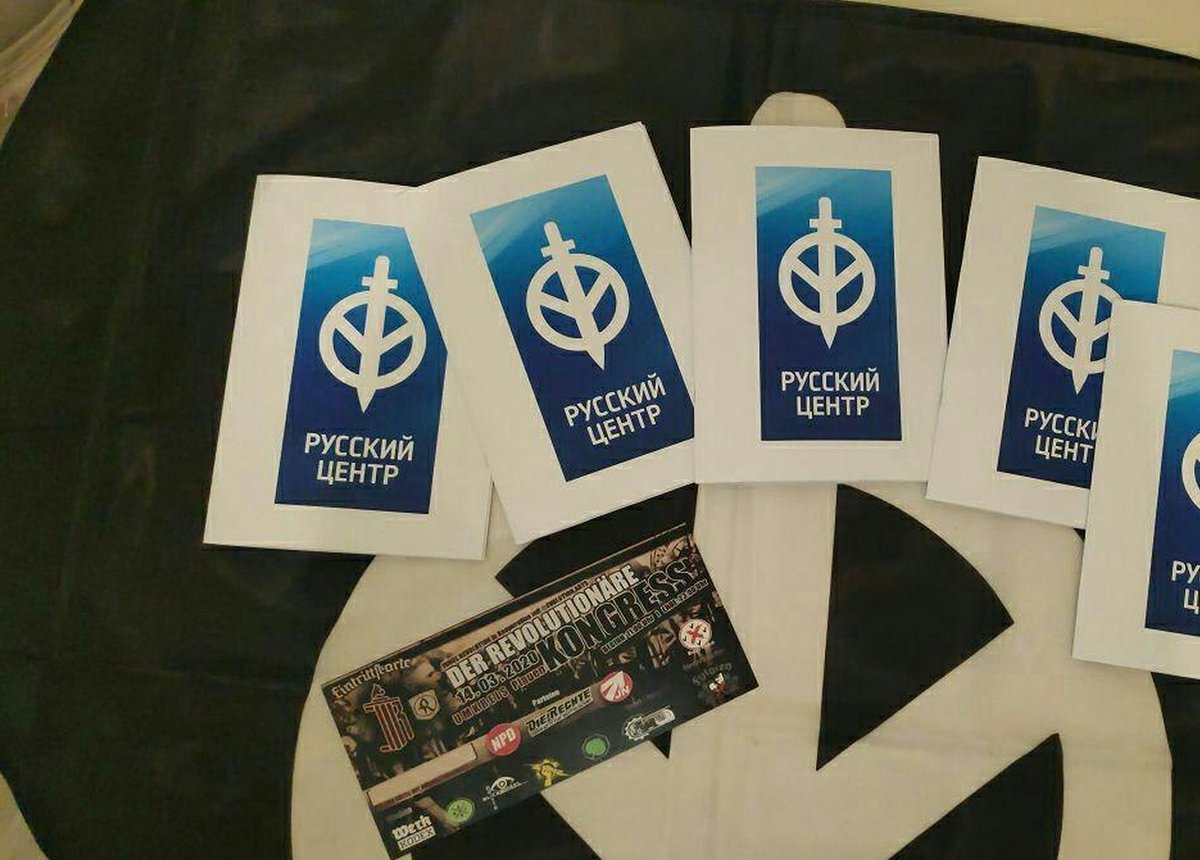
(8/25) The "Russian Center" is using the logo developed by Russian fascist & Nazi collaborator of the "Russian Liberation Army" Viktor Larionov in the 1930s.
The sword symbolizes struggle, the circle symbolizes unity and it represents the Man rune (rune of life).
The sword symbolizes struggle, the circle symbolizes unity and it represents the Man rune (rune of life).
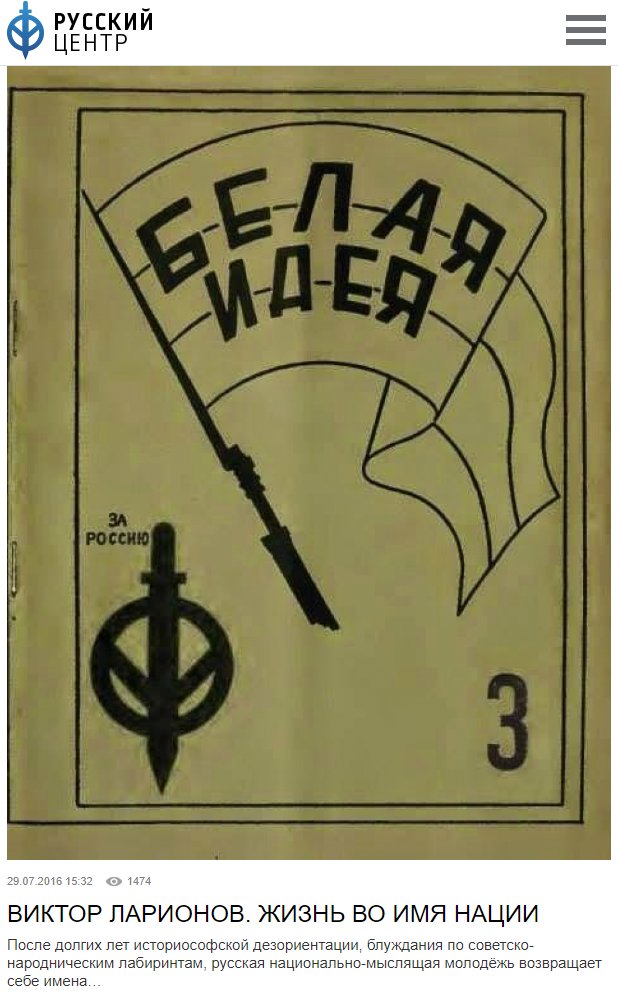
(9/25) Denis Tyukin positions himself on the ukrainian side because the success on the Maidan showed him that self-organization & successful resistance is possible. For him, it's a prologue to the Russian Revolution. For a later "Maidan in Moskau".
(10/25) Tyukin considered the creation of a nationalist political center on the territory of Russia impossible for now, but praised the possibilities on the territory of Ukraine. Therefore, Russian nationalists had gathered in Kyiv to organize themselves.
(11/25) This view was shared by many Russian Neo-Nazis who emigrated to Ukraine. There they organized themselves into neo-Nazi organizations like Wotanjugend surrounded by the subculture of martial arts (e.g. White Rex) and music bands like M8l8th. bit.ly/3f04A1W
(12/25) Olena Semenyaka, who was called the "first lady" of Ukrainian nationalism, played a major role in this network. She was considered Azov's coordinator for networking international far-right organizations. foiaresearch.net/person/olena-s… 

(13/25) She was also associated with far-right groups in Russia before the Maidan and published texts in the Eurasian Dugin network. She is also personally acquainted with Dugin.
illiberalism.org/olena-semenyak…
illiberalism.org/olena-semenyak…

(14/25) In her role as a networker for Azov, she got to know Russian neo-Nazi Denis Nikitin, who had emigrated to Ukraine in 2017. He was already well-connected with far-right groups in many countries through his MMA network "White Rex."
bit.ly/3gAeqIb
bit.ly/3gAeqIb
(15/25) Nikitin is currently fighting as one of the commanders of the "Russian Volunteer Corps" on the Ukrainian side. The unit is ideologically aligned with the aforementioned Viktor Larionov and the "Russian Center" and is composed of an unclear number of far-right Russians. 

(16/25) Fighters of the "Russian Volunteer Corps" fight against a Russia that destroys "Russians as an ethnic group." They also use the emblem of the russ. NS collaborators "Russian Liberation Army" from WW II.
They are not the "Freedom Legion"!
They are not the "Freedom Legion"!
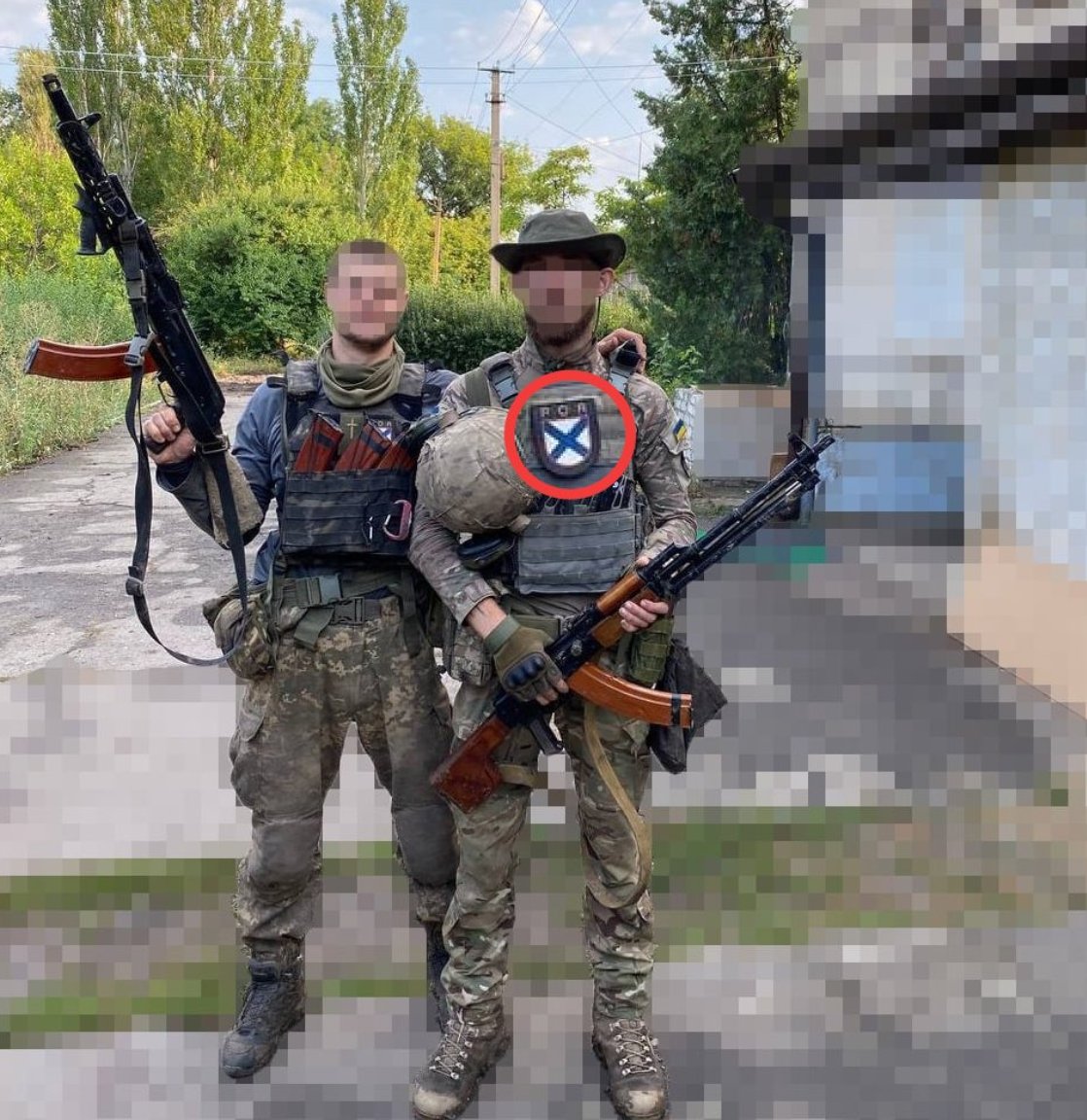
(17/25) The motivation of Denis Nikitin is similar to that of Denis Tyukin mentioned above. Nikitin also sees opportunities in Ukraine to organize as nationalists to fight against the Kremlin. The Corps thinks on its channel of Russian neo-Nazis. 


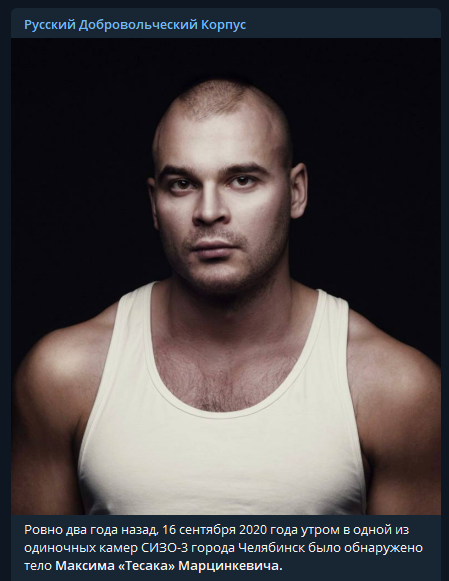
(18/25) It is interesting that Denis Nikitin says he had to explain himself personally to President Zelensky in order to be allowed to fight officially. In the meantime, he says, the Corps is about to be incorporated into official structures.
poslezavtra.io/smsl/prishlos/
poslezavtra.io/smsl/prishlos/
(19/25) In the interview linked above, Nikitin was interviewed by the Russian resistance group "The Day After Tomorrow" (ПослеЗавтра). The latter refer to the Italian fascist Stefano Delle Chiaie on their site. 
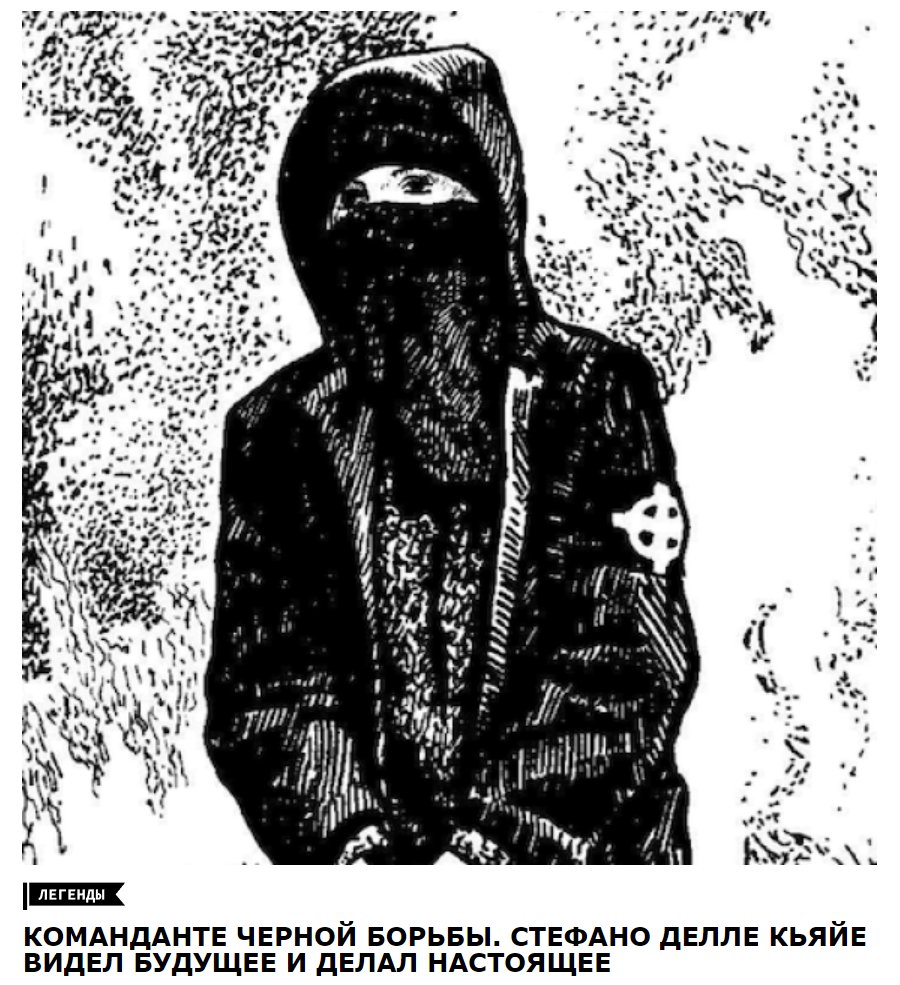
(20/25) This group, just like the "Russian Volunteer Corps", is repeatedly linked on the Telegram of the Russian resistance group "Rospartizan".
Here they link directly to the interview with Denis Nikitin.
Here they link directly to the interview with Denis Nikitin.

(21/25) The Rospartizan channel distributes a Russian White Supremacist Manifesto with anti-Semitism & racism on every page. Including advocacy of a race war in Russia.
👁️ @betelgeuse1922 @KevinRothrock @leonidvolkov @denistrubetskoy @ColborneMichael
👁️ @betelgeuse1922 @KevinRothrock @leonidvolkov @denistrubetskoy @ColborneMichael

(22/25) There are hints from @iponomarev himself that he may be part of the team behind the Rospartizan channel. He also repeatedly refers to "The Day After Tomorrow" (ПослеЗавтра) on his private channel. 



(23/25) All of this makes Ilya Ponomarev even more controversial than he already is.
He is trying to build himself up as a Russian opposition since 2019 Ukrainians and is criticized especially by Russian oppositionists:
meduza.io/en/feature/202…
He is trying to build himself up as a Russian opposition since 2019 Ukrainians and is criticized especially by Russian oppositionists:
meduza.io/en/feature/202…
(24/25) A straight line from neo-Nazi Tyukin & the "Russian Center" to neo-Nazi Nikitin & his Corps to Ponomarev, the Rospartizan Telegram and a White Supremacist Manifesto is that a big problem. Also Ponomarev wanted an alliance with Nikitin's Corps.
https://twitter.com/thomas_dudek/status/1583437787763597312
(25/25) It shouldn't be an option for White Supremacists to organize themselves in order to position themselves as a russian opposition that, unlike others, would "really do something and fight".
Because White Supremacy is not the future I want for Russia.
Because White Supremacy is not the future I want for Russia.
• • •
Missing some Tweet in this thread? You can try to
force a refresh


